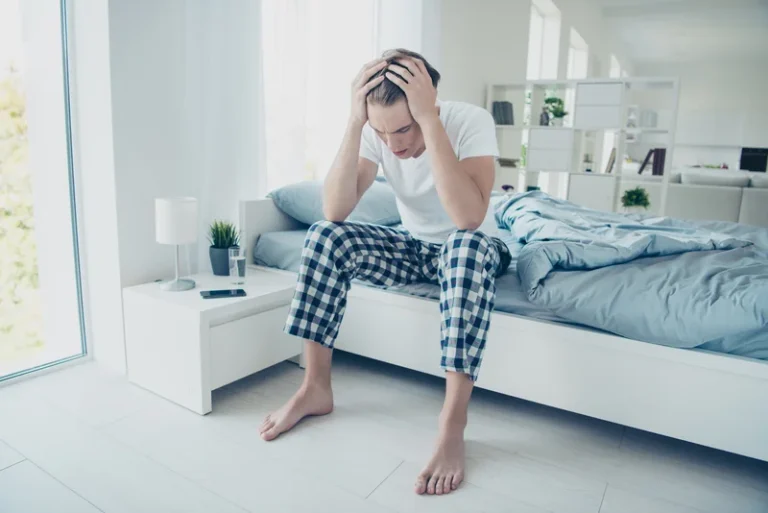What Happens to Your Body When You Stop Drinking Alcohol

Do you still have a drink almost every day? Or drink beer with friends once a week? According to a report published by one of the world’s most prestigious medical journals, the Lancet, on the results of a global and long-term study of alcohol effects on the human body, there is no minimum safe level of alcohol.
Try eliminating alcoholic beverages and foods from your life for just 30 days and see what happens to your body when you stop drinking. Men and women usually notice amazing changes not only on the physical but also on the mental and emotional levels.

Benefits of Not Drinking
According to Dr. Fiona Sim, a specialist in alcohol addiction counseling organization Drinkaware, after prolonged alcohol use, you may suffer from short-term memory loss. With no alcohol in your body, your brain regains electronic connections and the ability to remember what is happening without difficulty, unless the brain cells have been severely damaged by abuse.
The liver function is normalized and even appearance improves, although the quality of these improvements still depends on how much the liver has suffered. The feeling of guilt will also disappear, so you can meet with friends, work colleagues, relatives and not be tormented by the thought that you said or did something while drunk and do not remember anything about it.
Alcohol is not an aphrodisiac. Quite the opposite, our senses are numbed in a way, which means that disappointment with your sexual partner is more likely than fascination. Besides, the more alcohol a man and woman have, the more difficult it is for them to conceive a child.
In addition, alcohol affects mood swings and is the cause of sudden aggression, so quitting alcohol can “improve” bad temper. Also, a sober lifestyle reduces the possibility of contracting certain types of cancer, such as breast or colon cancer, and the risk of obesity.
Finally, you might be surprised, but alcohol destroys not only internal organs but even teeth. Dry mouth, familiar to anyone who has drunk, is due to impaired salivation. Lack of saliva destroys tooth enamel and increases the risk of tooth decay. These are slow processes, but even a month without alcohol is enough to restore dental health.


Take back control of your life and start on the road to recovery now.
No Alcohol for 30 Days
The following mind and body changes after quitting alcohol can be noted. Remember that this is only a general reaction and changes may occur in different people in different ways.
1-24 hours
This day is the most difficult for a person who quit drinking. The condition is accompanied by hangover syndrome. It is characterized by the following signs:
- severe headache
- heavy head
- trembling of all limbs
- high agitation
- nervousness
- tachycardia
- sudden blood pressure surges
- nausea or vomiting
- mood swings
- sleep disturbance or insomnia.
If you have been a heavy alcohol user for some time, what happens to your body when you stop drinking? If the individual is a chronic alcoholic, the body’s reaction might be more prominent and usually requires medical supervision. In fact, symptoms that might appear within just hours of abstinence may trigger life-threatening complications if not controlled by medical professionals.
48 hours
At this stage, your body overcomes the last barrier to cleanse the body of alcohol. Dizziness, headaches, fatigue, and other withdrawal symptoms may remain depending on what you drink, but the worst is over. Blood pressure stabilizes and body temperature is normalized.
72 hours
By this time, you will feel much better physically. All the side effects of a hangover should end, and cravings for sweets should be significantly reduced. Experts say that 72 hours after your last drink, you finally return to your normal physical and mental state. Once again, though, people with alcoholism may still have symptoms, tremors, and dizziness.
7 days
What happens when you quit drinking for a whole week? You will have a deeper sleep, as a result of which you will notice that you have more energy. It will be easier to get up in the morning, and you may even feel like jogging in the morning.
You will also notice that the skin becomes more hydrated as the body recovers. Alcohol interferes with natural antioxidants from fighting the free radicals that cause premature aging. If you had skin problems, such as dandruff or eczema, in the past, your condition should improve.

This can be a difficult journey, but you don’t have to go it alone. Let us be your guide and provide you the environment needed to regain control of your life and begin the path to recovery.
30 days
What happens to your body when you stop drinking even for such a short time? As a rule, during the whole month, it gains strength, recovers, and gets rid of toxins. Most often, during this time a person begins to do their usual activities and becomes more stable. In the first month, body changes after quitting alcohol may include the following:
- no more headaches
- clear thoughts
- ability to make decisions and be responsible for own actions
- no more shortness of breath
- improvements in the cardiac system
- better intimate life.
The decision to quit alcohol, even just for a short period of time, is a big step towards positive change, especially if the person is addicted. Most people who suffer from alcoholism need professional help because abstinence from alcohol is quite difficult for them. It is good to seek support from loved ones or seek professional help during this time since most relapses occur during the first few months of a sober lifestyle.




